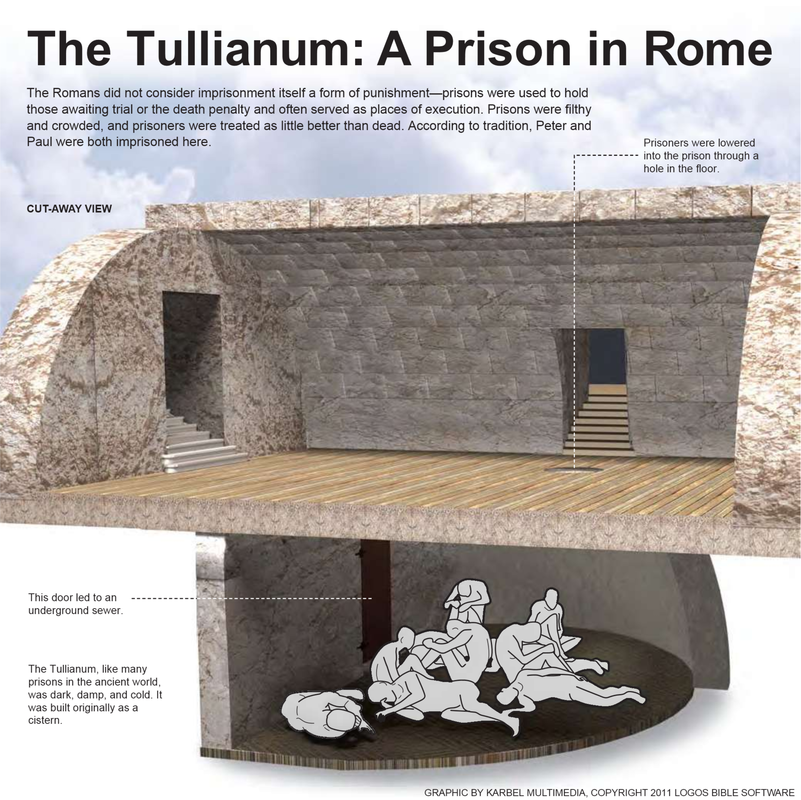Click here to read today's passage on Bible Gateway.
Paul the Prisoner and Mysteries
Today is an awesome passage with some very memorable verses, but nothing too difficult I think. Paul makes use of the word "mystery" which I don't think we've covered on the blog yet, but which I spent some time explaining in our Colossians sermons series. We'll probably cover it more in depth when we get to Colossians, but the basics are pretty obvious in this passage: we aren't talking about how we in modern times think of the word. This isn't some crime to be solved or anything like that. This is how the word is being used by Paul:
"The Greek mystērion...describes any divine or heavenly reality which is regarded as hidden or secret and can be known only when revealed by the gods...
Mystērion appears twenty-one times in Paul’s letters out of a total of twenty-seven NT occurrences. Usually it points not to some future event hidden in God’s plan, but to his decisive action in Christ here and now. Paul normally employs the term with reference to its disclosure or its being revealed (Rom 16:25–26; 1 Cor 2:10; Col 1:26–27; Eph 1:9; 3:3, 5)." [1]
This passage is relatively clear about this: the mystery is something in God's plan that no one saw coming - in this case the joining of the into the plan of God. This is a good word to pay attention to, because as you can see in the quote above, it occurs several times in important places.
Also I just wanted to provide you today with a little bit of visual "historical background". Paul mentions again in verse 1 of today's passage that he is a prisoner. Here's an infographic to help us to visualize and understand what that meant for him:
Paul the Prisoner and Mysteries
Today is an awesome passage with some very memorable verses, but nothing too difficult I think. Paul makes use of the word "mystery" which I don't think we've covered on the blog yet, but which I spent some time explaining in our Colossians sermons series. We'll probably cover it more in depth when we get to Colossians, but the basics are pretty obvious in this passage: we aren't talking about how we in modern times think of the word. This isn't some crime to be solved or anything like that. This is how the word is being used by Paul:
"The Greek mystērion...describes any divine or heavenly reality which is regarded as hidden or secret and can be known only when revealed by the gods...
Mystērion appears twenty-one times in Paul’s letters out of a total of twenty-seven NT occurrences. Usually it points not to some future event hidden in God’s plan, but to his decisive action in Christ here and now. Paul normally employs the term with reference to its disclosure or its being revealed (Rom 16:25–26; 1 Cor 2:10; Col 1:26–27; Eph 1:9; 3:3, 5)." [1]
This passage is relatively clear about this: the mystery is something in God's plan that no one saw coming - in this case the joining of the into the plan of God. This is a good word to pay attention to, because as you can see in the quote above, it occurs several times in important places.
Also I just wanted to provide you today with a little bit of visual "historical background". Paul mentions again in verse 1 of today's passage that he is a prisoner. Here's an infographic to help us to visualize and understand what that meant for him:
Questions? Comments?
[1] Gerald F. Hawthorne, Ralph P. Martin and Daniel G. Reid, Dictionary of Paul and His Letters (Downers Grove, IL: InterVarsity Press, 1993), 621-622.

 RSS Feed
RSS Feed
